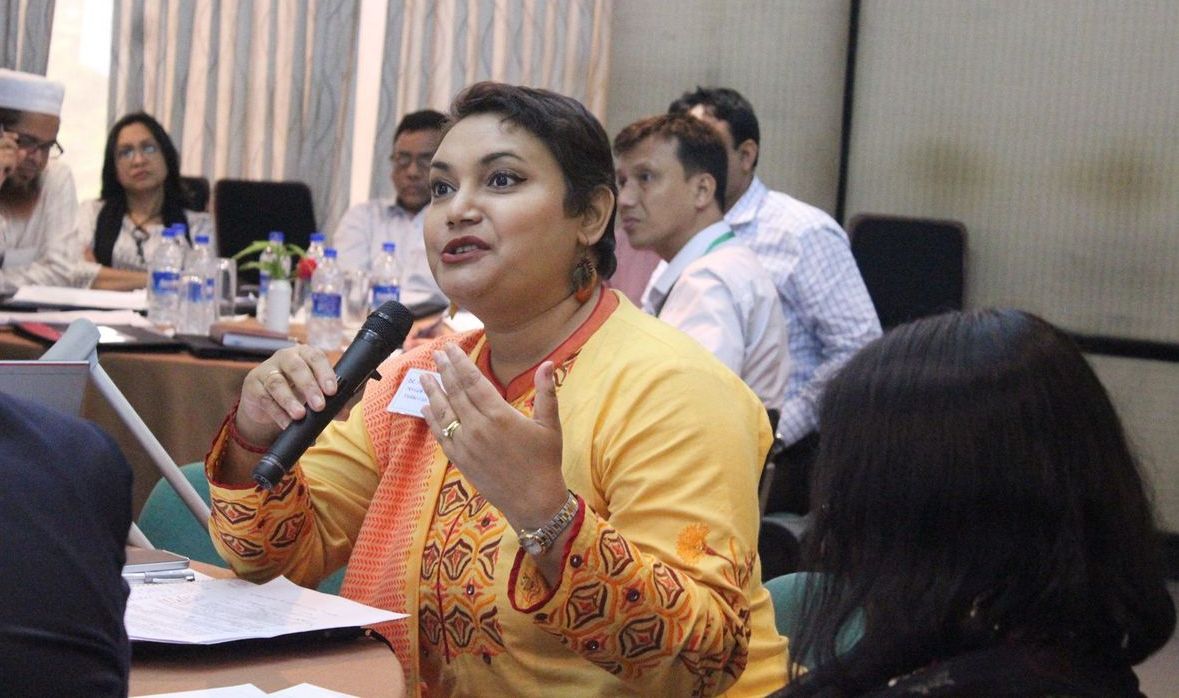The purpose of the consultations is to obtain views from a wide array of regional and country level stakeholders on the proposals from the HLPW on the Valuing Water preamble and principles. The consultations will build awareness and examine the regional/country level relevance of global perspectives, and provide inputs, options and recommendations that will enhance resolutions from the High Level Panel on Water (HLPW).
Both national and international panel of dignitaries graced the inaugural session of the consultation. The Guest of Honour, H. E. Ms Leonie Cuelenaere, Ambassador of the Netherlands to Bangladesh stressed on valuing water socially, culturally, economically as well as environmentally. The key points emphasised by her to the audience were the importance of having a common language for all to understand value of water and necessity of maintaining water as a dignified human right. Thus, Ms Cuelenaere invited all stakeholders to provide inputs for further developing the principles in valuing water. Ms Suraiya Begum, Senior Secretary and HLPW Sherpa to the Honourable Prime Minister of Bangladesh repeated the high value of water in Bangladesh and the lack of generic concerns and consensus of the professionals over the issue. Chief Guest Mr Muhammad Nazrul Islam, Honourable State Minister, Ministry of Water Resources, in his speech highlighted the prioritisation in water allocation for different competing sectors.
Session I was on Preamble and Principles. The groups discussed on enriching the prevailing set of principles and preambles by incorporating the local context as water issues varies from one hydrological as well as hydro-political setting to another. Out of the 30, four suggestions were selected as major suggestions for adding values to the HLPW devised schemes.
• The primary concern for Bangladesh is transboundary water resources management, hence shared management in the form of river basin organisations are required to ensure regional cooperation.
• Bangladesh is having the eighth largest population in the world with a large portion still live below the poverty line. Therefore, it is vital to take precautions to ensure availability of water especially to the disadvantaged group. Subsidising the water management in the country to meet these necessities could prove an effective investment in ensuring sustainable development.
• Ensure easy access to water for women in order to reduce the daily burden.
• Water is a national infrastructure where inland transport and navigation is heavily dependent on availability of adequate flow for safe passage of water vessels. Navigation routes have to be maintained regularly and should develop technologies among the riparian countries on effective silt management.
The Technical Session 2 was on Actions. The groups prioritised three types of actions including actions for the HLPW, actions to be included in the recommendations and actions more specific for implementing valuing water in Bangladesh.
Mr Rudolph Cleveringa, GWP Executive Secretary and Ms Meike van Ginneken, Practice Manager South Asia, World Bank thanked all the participants for their valuable contributions at their concluding remarks.
